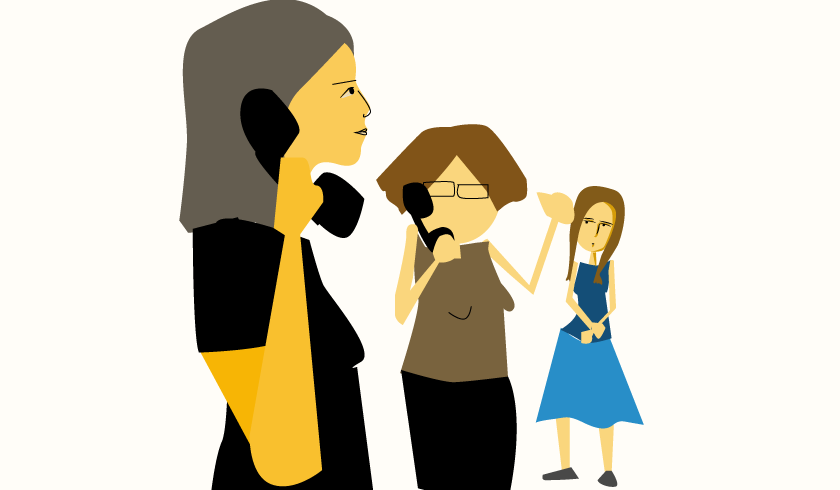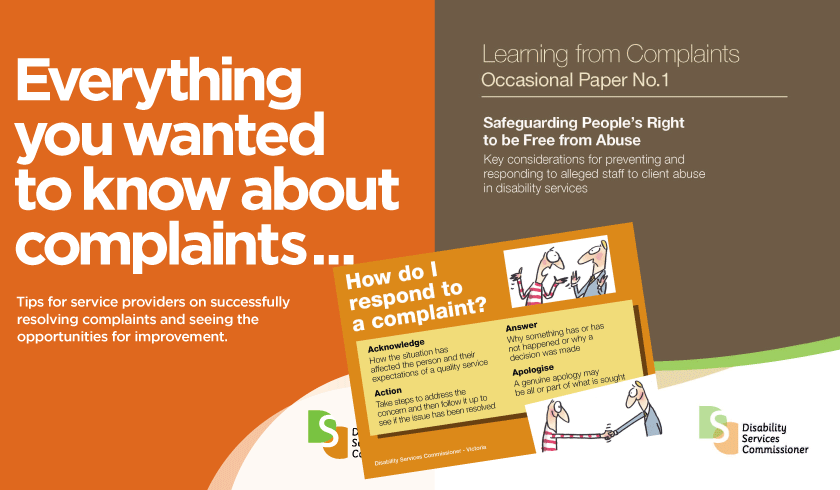Download in PDF (96 KB)
The Disability Services Commissioner (DSC) has the power to visit and inspect the premises of disability service providers during an investigation.
Why does DSC have inspection powers?
Under the Disability Act 2006 DSC can conduct the following investigations:
- Complaint Investigations – these can be conducted if DSC has decided to accept a complaint which is not suitable for conciliation, or conciliation has been tried and has not worked.
- Individual Commissioner initiated investigations – these can be conducted if DSC receives information that abuse or neglect may have occurred in the provision of disability services
- Systemic Commissioner initiated investigations – these can be conducted if DSC identifies a persistent or recurring systemic issue about abuse or neglect in the provision of disability services
- Investigations into matters referred to DSC by the Minister for Disability, Ageing and Carers or the Secretary to the Department of Health and Human Services
The Disability Act 2006 provides the DSC with various powers during these investigations. This includes the power of DSC Authorised Officers to visit and inspect premises of disability service providers that are the subject of the investigation.
When and why would DSC use their inspection powers?
DSC may conduct a visit and inspection as part of their investigation.
For example, this may occur if DSC receives information about a time critical concern that affects the safety and wellbeing of people with disability.
What happens when DSC Authorised Officers visit and inspect a disability service?
Each DSC Authorised Officer has photo identification. They will show their identification and talk to the person in charge of the premises before they enter and inspect any disability service.
During a visit and inspection, DSC Authorised Officers have the power to:
- make enquiries in relation to people with disability who are receiving services on the premises from the service provider
- require anything on the premises to be produced for inspection
- take photos, video, or make an audio recording
- obtain access to relevant documents to examine, copy, and remove them
- see and interview relatives or support persons of people with disability with their consent
- require the service provider and their employees, contractors or volunteers to answer questions
With the consent of the person with disability, or their guardian or next of kin, DSC Authorised Officers may also:
- interview the person with disability
- enter their private bedroom
- view their medical records.
What are the rights and obligations of the disability service provider and its staff during the DSC Authorised Officer visit and inspection?
The person in charge of the premises must provide the DSC Authorised Officers with reasonable assistance during their visit and inspection.
In addition, any person who provides services that are the subject of the investigation must provide the DSC Authorised Officers with any assistance that they reasonably require.
Staff may refuse to answer questions or give information to the DSC Authorised Officers if the answers may incriminate them, or if the information would disclose confidential communications between the staff and a legal practitioner.
Any information that staff provide in good faith will not constitute unprofessional conduct, or a breach of professional ethics. They will also be protected from any liability in relation to the disclosure of the information or documents.
It is an offence for any person to make a verbal or written statement to the DSC Authorised Officers which they know to be false or misleading.
What happens after an inspection by DSC Authorised Officers?
Information and documents gathered by DSC Authorised Officers will be used to assist with the investigation.
At the end of the investigation, DSC will communicate its decision, and reasons for decision to the disability service provider and other specified persons. DSC may also determine that the disability service provider should take action to improve the disability services that were investigated, and in these cases, will also issue the disability service provider with a Notice to Take Action.
DSC may also share information gathered during an inspection and visit with other agencies such as the Department of Health and Human Services, the National Disability Insurance Agency and Victoria Police.
For more information about inspection powers
Website: www.odsc.vic.gov.au
Phone (preferred): 1800 677 342 (free call from landlines)
Email: complaints@odsc.vic.gov.au
National Relay Service: www.relayservice.gov.au then 1800 677 342
Download in PDF (96 KB)










